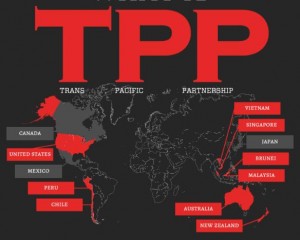Though the recently scheduled Ministerial meeting was postponed – reflecting other countries’ frustration with the United States’ inability to win Congressional passage of Fast Track trade negotiating authority – the intellectual property negotiators have been attempting to finalize as much text as possible.
The Japan Times reports that the intellectual property chapter appears “likely to be the last hurdle to concluding the talks.” Remaining issues that are under debate include copyright term, geographical indications, and data exclusivity (a time period during which generic firms cannot win approval of their products based on clinical data previously disclosed by branded firms).
The Chilean Minister of Foreign Affairs told a meeting of civil society that “we will not take new commitments on intellectual property beyond what we already have, or modify our internal legislation.” he singled out the proposed 12 year term for data exclusivity for biologics as something that Chile would not agree to.
Inside U.S. Trade reports that negotiations IP negotiators in Guam are discussing the period of time developing countries will have to implement TRIPS-Plus IP provisions. They are leaning towards favoring time-based rather than development-based transition periods. Says Inside U.S. Trade: “TPP countries generally are coming to see it as more practical for the trade deal to contain moderate IP rules that can be implemented over a relatively few number of years, rather than crafting stringent rules that will be phased in at an undetermined point in the future.” Negotiators have also been discussing the Bolar Exemption (which allows generic firms to test drugs before patent expiry), though this issue may also be ultimately decided by Ministers.





